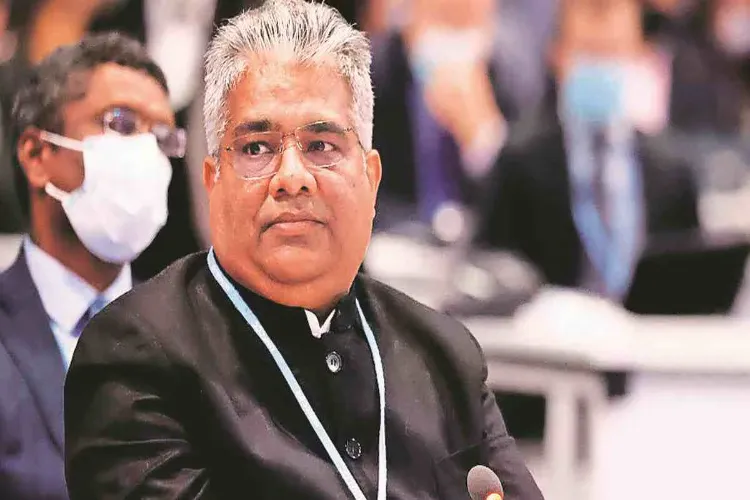
New Delhi
India has launched the National Critical Mineral Mission 2025, aimed at securing key resources essential for the country's economy, development, and national security. The announcement was made on Tuesday by Union Minister Bhupender Yadav during the 20th Global Sustainability Summit hosted by the Confederation of Indian Industry (CII).
Yadav said, "The Government of India has launched the National Critical Mineral Mission 2025. Under this mission, 24 minerals have been identified as critical and strategic, and 29 other minerals have been considered important for strengthening the country's economic development and national security." He added that the Ministry of Environment, Forest and Climate Change has made amendments through the forest conservation and augmentation rules to support this mission.
Explaining India's strategy, Yadav noted that the country's sustainability model rests on balancing the economy and ecology. He stressed that nations must "re-engineer a new growth model and resilient development priorities" with sustainability at the center of policymaking. He highlighted the need for solutions across the economy, including circular economy models, green manufacturing, and encouraging responsible practices.
The minister also spoke about the government's recent steps to back these efforts. "On August 29 last month, we enacted the environment audit rules 2025. These rules establish a formal framework for environmental auditing across India. The new rules, which come into force immediately, are designed to supplement the existing government monitoring and inspection framework, not to replace it," Yadav said. He further pointed out revisions in the green credit program, which now allow direct participation by private entities.
Sanjiv Puri, Immediate Past President of CII (2024-25) & Chairman & Managing Director of ITC Limited, underscored the urgency of addressing the climate crisis. "We have the climate crisis. We have threats to food and nutrition security. We have challenges of social inequity, of course, and also complicated by the geo-economics, geopolitical and advent of trends like AI, where concerns of livelihood are arising," he said.
Puri warned that while the world has acknowledged climate threats, progress remains slow. "While the world has recognized this threat, there are several commitments on net zero, by countries, by enterprises, but we all know the progress has been woefully inadequate," he added.
READ MORE: Imran Nahar revived Bengal’s vanishing proverbs and fairy tales
Calling for a shift in approach, Puri said, "We have to reimagine the way supply chains are formulated, the way products are manufactured, the way we use the products, the way we distribute them, we have to reimagine business models completely." He also emphasised that sustainability is "everybody's business" and must be an inclusive process, with sustainable lifestyles serving as the foundation for long-term growth.
